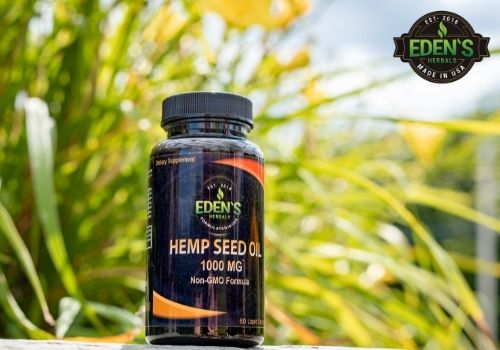 What's the old joke, "look, squirrel!". Those of us whose mind easily wanders can relate. Often age or lack of sleep can make any ordinary person have trouble concentrating.
What's the old joke, "look, squirrel!". Those of us whose mind easily wanders can relate. Often age or lack of sleep can make any ordinary person have trouble concentrating.
In this age of having so many devices that do the thinking for us, it's as important as ever to make sure we sharpen our concentration skills. After all, the brain is a muscle (I know it's an organ), but the point is, use it or lose it.
In this post, we'll look at ways to improve concentration and muscle memory. Not all of these tips are focused on the brain, either. What you fuel your body with, you also fuel your brain.
Sleep
Getting enough sleep is the most critical thing you can do not only for better concentration but for overall health. According to sleep expert Dr. Merrill Mitler of the NIH, "Sleep services all aspects of our body in one way or another: molecular, energy balance, as well as intellectual function, alertness, and mood."
 Proper rest consists of four primary sleep cycles:
Proper rest consists of four primary sleep cycles:
N1: The "Dozing" off stage, which lasts one to five minutes.
N2: These last 10-25 minutes are that "in-between" stage of dozing and sleep.
N3: The deep sleep stage is essential for proper rest. Deep sleep is usually dreamless. Twenty minutes in this stage alone can lead to better concentration levels throughout the day.
REM: Rapid Eye Movement is the "dream" stage and is a valuable restorer of mental health.
Add these stages up for a total of seven to eight hours, and you're well on your way to better concentration levels.
If you're having trouble sleeping this amount or tossing and turning, try eliminating the TV and digital accessories. I know you'll be bored the first few minutes, but you'll soon fall asleep faster than you probably thought and have fewer interruptions throughout the night.
Exercise
According to a 2013 study by Harvard Health, regular exercise releases brain chemicals vital for concentration and memory. Exercise also improves mood and reduces stress, further helping your mind function at optimal levels.
In 2009 a study conducted by the NIH found that, "moderate intensity exercise is related to increased performance in working memory and cognitive flexibility, whereas high-intensity exercise improves the speed of information processing".
 The added benefit of regularly working out is other disease biomarkers decrease, such as diabetes, heart disease, and cancer. The Mayo Clinic lists seven other benefits of regular exercise, including:
The added benefit of regularly working out is other disease biomarkers decrease, such as diabetes, heart disease, and cancer. The Mayo Clinic lists seven other benefits of regular exercise, including:
- Weight Loss
- Lower Blood Pressure
- Mood Improvement
- Increases Energy Levels
- Helps You Sleep Better
- Great For Sex Drive
- Social Interaction
Shoot for 150 minutes a week. Even low-intensity workouts, like brisk walking, count. You can even break the exercises into 10-minute segments.
Mindfulness
 Mindfulness is, ironically, the practice of not being 'full of mind.' It is simply the act of not thinking. The brain is a powerful instrument. Most of the thoughts we have, however, serve no purpose.
Mindfulness is, ironically, the practice of not being 'full of mind.' It is simply the act of not thinking. The brain is a powerful instrument. Most of the thoughts we have, however, serve no purpose.
Stop the process and focus on the present by not letting your brain get carried away by a useless thought.
This is the practice of mindfulness. Neuropsychologist Kim Willment of Brigham and Women's Hospital recommends sitting still for a few minutes each day and focus on your breathing and sensations around you.
The great thing about mindfulness, or mindlessness as it should be called, is that you don't have to 'officially' meditate to achieve it. If you're in a crowded bus, for example, close your eyes and 'feel' your breath, as it were.
By taking attention away from the noise, both internal and external, you'll be transformed into the realm of presence - the only place that ever truly exists.
Being able to tap into the present moment whenever you want or need to will not only improve concentration, you'll have a whole new perspective on life!
Neuroplasticity
Neuroplasticity is the ability to change our brain cells in response to our behavior. For example, if you learn a new language, new pathways and circuits are created in your brain to accommodate the mind's task.
 Neuroplasticity is still a relatively new field of study, but scientists have already made exciting discoveries, including the following benefits:
Neuroplasticity is still a relatively new field of study, but scientists have already made exciting discoveries, including the following benefits:
- Recovery from Stroke
- Traumatic Brain Injury (TBI)
- Rewire Lost Brain Functions
- Enhanced Concentration and Cognitive Skills
- Treatment of Chronic pain
- Anxiety and Depression
- Alzheimer's
Supplements
Hands down, one of the best supplements to take for concentration levels is vitamin D3. Not only is the vitamin critical for healthy brain nerves, but many other critical aspects of our overall health.
to Scientific American, low vitamin D3 levels and impaired cognitive function have a direct correlation.
However, not just any vitamin D3 will do. Studies suggest taking vitamin D3 with vitamin K2, typically found in fermented foods and organ meats, together dramatically increases the bioavailability of both. This is important because of two things:
Our body stops producing vitamin D3 as we age
The modern western diet is sorely lacking in these two vitamins
Developing a vitamin d deficiency is common as we get older, adding a simple daily supplement can help provide us with the nutrients we are missing.
 Omega 3 and 6 are another important "brain food" sorely lacking in today's diet. According to The UNC School of Medicine, "Animal studies suggest that omega-3 fatty acids may protect against developing Parkinson's disease, Alzheimer's disease, Huntington's disease, and may minimize symptoms of brain injury".
Omega 3 and 6 are another important "brain food" sorely lacking in today's diet. According to The UNC School of Medicine, "Animal studies suggest that omega-3 fatty acids may protect against developing Parkinson's disease, Alzheimer's disease, Huntington's disease, and may minimize symptoms of brain injury".
Hempseed Oil
Look for products like a quality hempseed oil that profile favorably with an omega 3 to 6 ratio. Most western diets have a ratio of 20:1, whereas the ratio should be closer to hempseed oils' natural balance, which is an ideal 3:1.
CBD Oil for Concentration
CBD oil has shown promising results in recent studies conducted by the NIH for a variety of mental conditions, including anxiety relief. It's also been approved by the FDA to treat neurodegenerative diseases like Epilepsy. Incorporating CBD into your routine can be as simple as adding a drop or two into your morning coffee.
 Many people lose out by not getting proper rest, exercise and proper supplementation into their lives. Try and incorporate a few of these simple tips, invest in some credible supplements, like CBD, and watch how fast your concentration levels rise!
Many people lose out by not getting proper rest, exercise and proper supplementation into their lives. Try and incorporate a few of these simple tips, invest in some credible supplements, like CBD, and watch how fast your concentration levels rise!
If you want to learn more about ways to improve your concentration, contact Eden's Herbals at support@edensherbals.com today!
*These statements have not been evaluated or approved by the Food and Drug Administration and are not intended to diagnose, treat or cure any illness. Medical advice should be taken from a medical professional.
All of the articles on this site are written by 3rd party content providers, expert bloggers or doctors not directly affiliated with Eden's Herbals.
Individuals should learn the risks and side effects prior to taking CBD. Make sure to always check with a medical professional before starting any new CBD treatment or medication that is not FDA approved.


